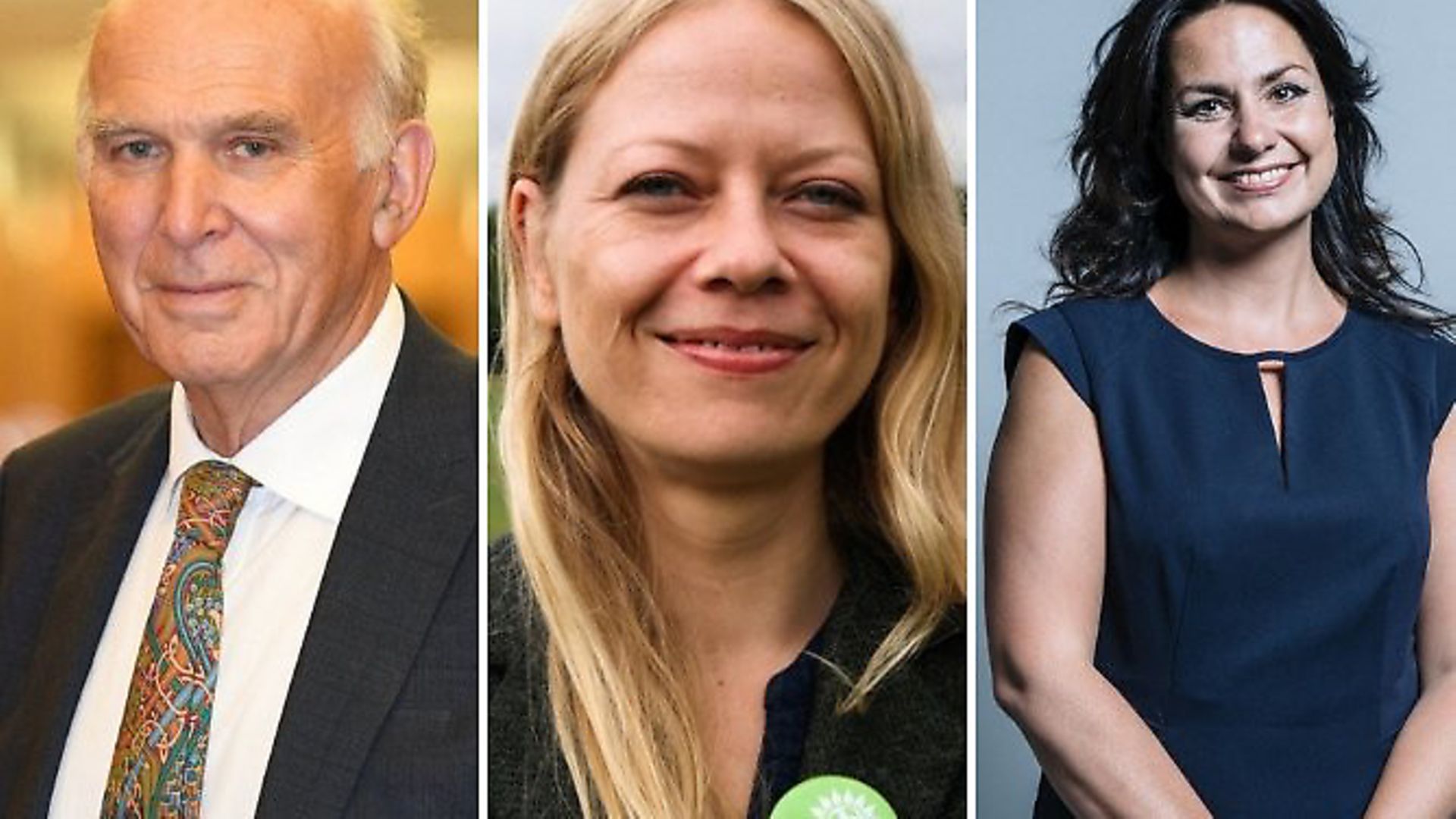
Anti-Brexit parties could win twice as many seats in the European elections next month if they agree to join forces, new research suggests.
An analysis by the Financial Times found that if the newly-formed Change UK party, the Greens and the Liberal Democrats put forward a unified slate of candidates they could win 16 of the 60 European parliament seats being contested. The newspaper’s research suggested that if they fielded candidates separately, they would only will only seven seats, all of which would go to the Lib Dems.
The FT based its analysis on polling data from four organisations which showed the Lib Dems currently hold a 9% share of the vote, with the Greens on 7% and Change UK on 5%.
The vast differences in fortune, depending on whether the parties can agree a pact, are down to the way seats are allocated on a regional basis under a proportional voting system used for the European elections. The small number of seats in each region introduces an effective minimum vote share threshold that any party must pass to get representation in the European parliament.
In north-east England, with just three seats to play for, parties will have to win more than about 20% of the vote to gain a seat. In south-east England, with 10 seats, the threshold is around 7%.
The FT analysis suggested that if parties all stood against one another in all regions Labour would win the most seats, with 26, followed by Conservatives on 14, Nigel Farage’s Brexit Party would be on 10, the Lib Dems on seven and the UKIP on three.
However, if the three anti-Brexit parties were able to form an alliance, to avoid their candidates competing with one another, they could win 16 seats, with Labour on 22, the Tories on 12, the Brexit Party on nine and UKIP on three.
The Lib Dems, Change UK and the Greens – who all support the idea of a second referendum – have been in talks about presenting a unified slate of candidates. However, the plan has so far come to nothing.
Unless prime minister Theresa May succeeds in securing approval in parliament for her EU withdrawal agreement, European elections will go ahead on May 23 in the UK.









